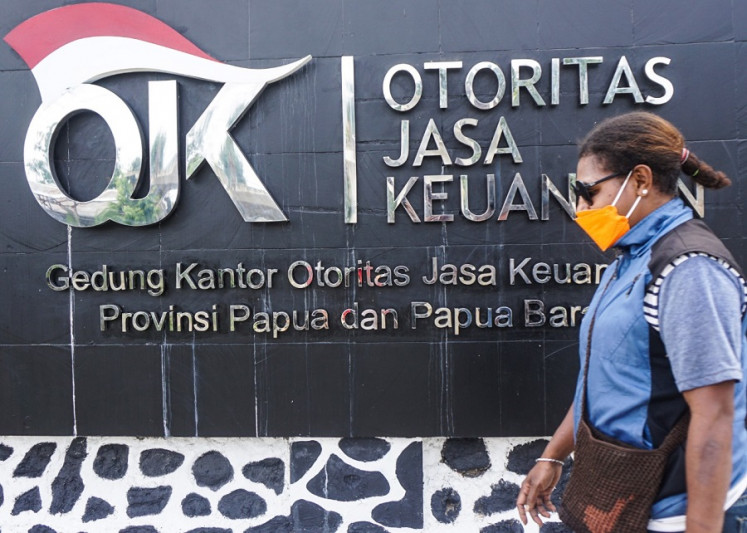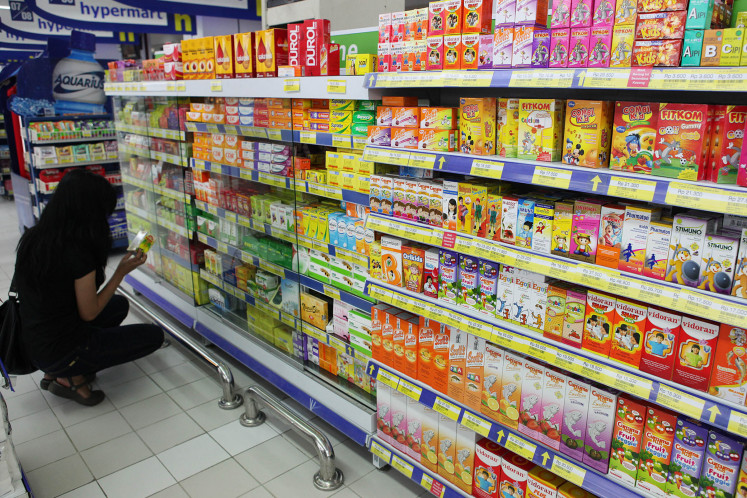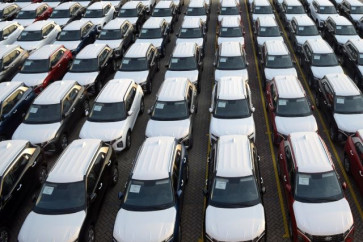Popular Reads
Top Results
Can't find what you're looking for?
View all search resultsPopular Reads
Top Results
Can't find what you're looking for?
View all search resultsMaintaining the resilience of Indonesia’s export performance
Indonesia's economy has long relied on China, with this dependency understood from various perspectives.
Change text size
Gift Premium Articles
to Anyone
The year 2024 presents a challenging landscape for the global economy.
High levels of uncertainty, driven by geopolitical tensions, high interest rates and persistent inflation, have disrupted supply chains. These conditions significantly impact global trade performance, including that of Indonesia. Domestic trade performance is also affected by the economic slowdown in China, initiated by the trade war with the United States and followed by a crisis in the property sector.
The Chinese government's strict policies, coupled with demographic issues such as a large and non-productive elderly population and high social burdens, have limited China's economic growth. The weakening of China's economy is evident from its average economic growth since 2012 until pre-COVID-19, which was only 6.29 percent, lower than the 2003-2011 average of 10.86 percent. The weakening Chinese economy also directly impacts global commodity prices and negatively affects commodity-dependent countries like Indonesia.
Indonesia's economy has long relied on China, with this dependency understood from various perspectives.
China is Indonesia's largest trading partner, with significant trade volumes between the two countries. Additionally, China is a major investor in Indonesia, especially in the infrastructure and natural resources sectors. Direct investment from Chinese companies has influenced Indonesia's economic growth, particularly in job creation and infrastructure improvement. Furthermore, China's substantial economic power and high production capacity make it a primary choice for Indonesia in importing consumer and capital goods. This dependency allows Indonesia access to cheaper products but also involves supply failure risks if there are disruptions in China's economy.
In 2023, Indonesia's export market share in the global market was only 1.1 percent of the total global export value, with total exports reaching US$258.8 billion, a decline of 11.34 percent year-on-year (yoy), impacted by the global economic slowdown, particularly in China, which accounts for 22.9 percent of Indonesia's exports, significantly affecting Indonesia's export value, even if export volume may not change significantly.
Indonesia's export performance in the first five months of 2024 reached $104 billion, a decline of 3.52 percent yoy. Although still contracting, there are signs of improvement compared with the first five months of 2023, which saw a decline of 6.1 percent yoy. This improvement is due to better performance from export destination countries, especially non-oil and gas, which account for 93.6 percent of total exports, with destinations such as India, the US, the Philippines, Japan and the Netherlands. With a significant share of non-oil and gas exports, we must continue to increase capacity to ensure export performance grows. Despite some indicators showing signs of improvement, these challenges require appropriate policies and international cooperation to ensure long-term economic stability and growth.



















